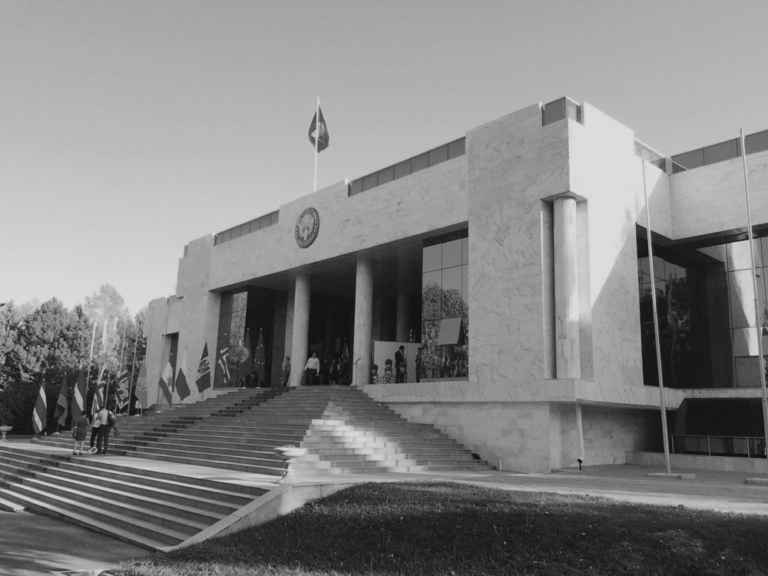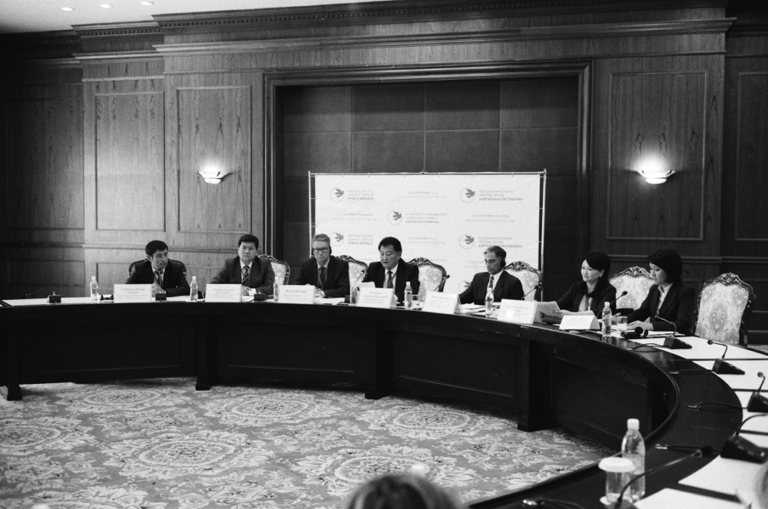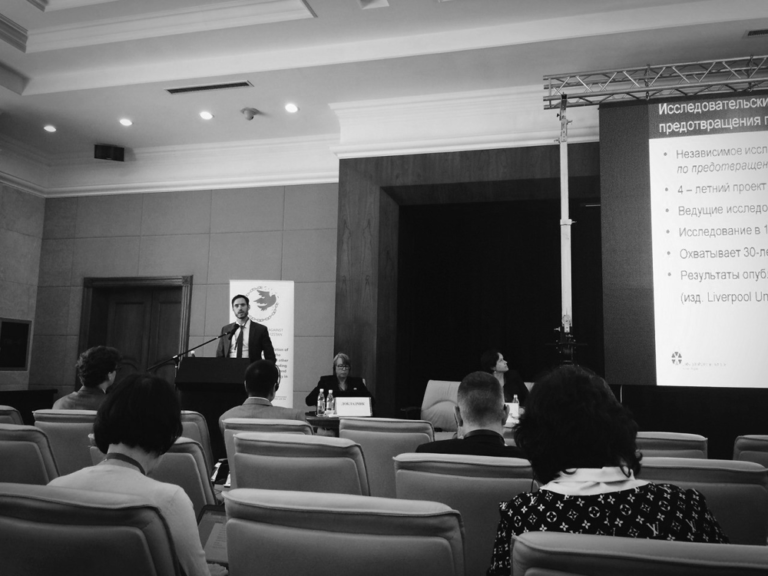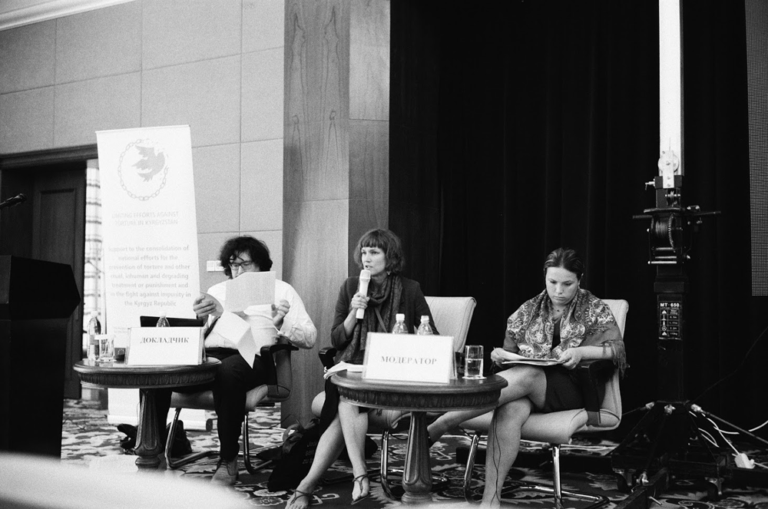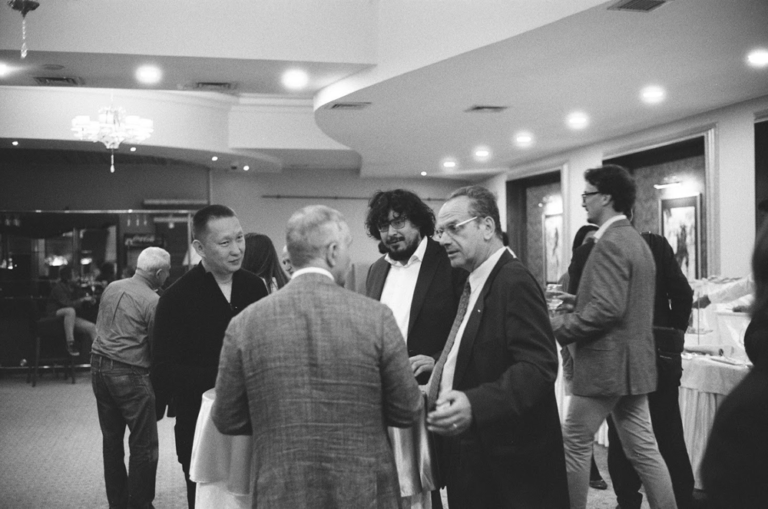More than 200 experts discussed how to improve torture investigation and documentation in Bishkek, Kyrgyzstan
The Ludwig Boltzmann Institute of Human Rights (BIM), a Consortium Partner of the EU Project “Promotion of Rule of Law in Kyrgyzstan”, has co-organised the international High Level Conference “Istanbul Protocol Implementation: Transforming Regional Experiences into International Norms for Effective Torture Investigation and Documentation” from 21 to 22 September 2016 in Bishkek, the Kyrgyz Republic.
The BIM co-organised three working sessions of the conference dealing with legal aspects of the Istanbul Protocol, an important instrument in the field in investigation and documentation of torture.
Moritz Birk, Senior Researcher at the BIM, presented the results of a global comparative study on the effectiveness of detention-related safeguards in the prevention of torture. Gerrit Zach, BIM researcher and key expert in the EU Rule of Law project moderated the legal working group on effective legal investigation and prosecution. Dmitry Nurumov, BIM key expert in the EU Rule of Law project facilitated the plenary session on effective adjudication and redress. The conference also looked at medical and institutional aspects of torture prevention and prosecution.
Among the speakers at the conference were Ms. Gulmira Kudaiberdieva, Vice Prime Minister of the Kyrgyz Republic, Mr. Kubatbek Otorbaev, Ombudsman of the Krgyz Republic, whom BIM already welcomed in Vienna in April 2016 during a study visit, and Ms. Lyudmila Usmanova, Deputy General Prosecutor of the Kyrgyz Republic. Mr. Jens Modvig, Chairperson of the UN Committee against Torture and Mr. Vincent Iacopino, Medical Director of Physicians for Human Rights, also gave keynote presentations.
The main goal of the two-day gathering was the exchange of national, regional and international experiences in investigating and documenting torture in line with the Istanbul Protocol. The participants of the conference also looked at how promotion and institutionalization of the Istanbul Protocol has been progressing in the region; what should be done to increase coordination between various international and regional stakeholders; and how to close the implementation gap by making standards work in practice. The participants looked at torture prevention, prosecution and redress from an inter-disciplinary approach as lawyers, doctors, civil society representatives and governmental officials discussed their contributions to fight torture. The conference also examined the experience of the Kyrgyz Republic with the implementation of the Istanbul Protocol – a process that has already started in the Republic and will be re-enforced through the review at the conference.
The conveners of the conference were the Soros Foundation-Kyrgyzstan and the Coalition of NGOs against torture in Kyrgyzstan. The Kyrgyz government and a range of other organisations such as OHCHR, OSCE and others were involved in preparing the conference.de

